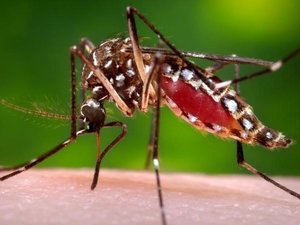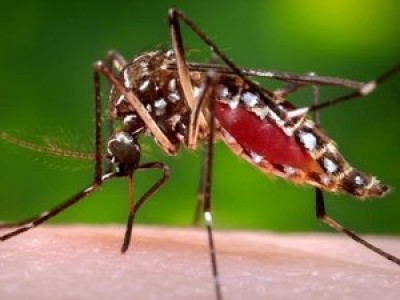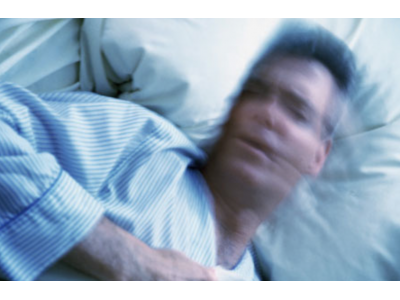 This is a typical Asian disease. Fortunately, people cannot spread this disease therefore it is not dangerous to others. In most cases it is treatable although sometimes the disease is accompanied by a shock state in which blood clotting function is impaired. Meanwhile, the number of infected people in the world is 10 times smaller than that of the flu. The mortality rate is almost the same as the flu. Although in the Dengue fever, this figure can sometimes be greater and sometimes smaller but severe form which can lead to fatal outbreaks mainly affect local people - Asians. The classic form of disease that tourists can have is usually not dangerous and has a much lower mortality rate than the flu. Dengue fever in Asia is almost like flu in other countries. It’s just not the usual name for disease. The illness usually ends up in about a week. There is no definite treatment, there are only supportive procedures. That is, doctors do not treat Dengue fever but support the body until it cope with the disease itself, but it is best to make an analysis and be sure.
This is a typical Asian disease. Fortunately, people cannot spread this disease therefore it is not dangerous to others. In most cases it is treatable although sometimes the disease is accompanied by a shock state in which blood clotting function is impaired. Meanwhile, the number of infected people in the world is 10 times smaller than that of the flu. The mortality rate is almost the same as the flu. Although in the Dengue fever, this figure can sometimes be greater and sometimes smaller but severe form which can lead to fatal outbreaks mainly affect local people - Asians. The classic form of disease that tourists can have is usually not dangerous and has a much lower mortality rate than the flu. Dengue fever in Asia is almost like flu in other countries. It’s just not the usual name for disease. The illness usually ends up in about a week. There is no definite treatment, there are only supportive procedures. That is, doctors do not treat Dengue fever but support the body until it cope with the disease itself, but it is best to make an analysis and be sure.Risk factors:
1. Hyperepidemic. The virus of a fever very actively extends. The source of infection is the mosquito-carrier. Annually 2.5% of all diagnosed people died. Moreover, these figures are average. In some regions, with individual outbreaks, mortality rates reach 50%!
2. Rapid proliferation. If in the middle the second half of the XX century outbreaks of Dengue fever were registered only in 9 countries, at the moment the infection spread to 128 countries. It’s located at tropical and subtropical areas. Today there is evidence of cases even in Europe. The main reason for this spread is the export of products.
3. "Urban" disease. Dengue fever has a lot of traditional names: scrofulous, giraffe, seven-day and so on. But it can rightly be called "urban" because it spreads most intensively in cities and towns. This is facilitated by crowding and creating mosquito breeding environments (standing water tanks, garbage, and so on).
4. Pathogen and pathways of transmission. This type of virus in its life cycle has an intermediate host the carrier.
The incubation period, after a bite and infection, lasts an average of a week. The number of cases of the disease is difficult to estimate, because in a weak form, the Dengue fever symptoms are sometimes difficult to distinguish from other diseases. It begins acutely: with an increase in body temperature to 39-40 degrees C, aches in bones and joints, severe headache. After a couple of days, the heat drops sharply, but then the temperature rises again. There are also possible accompanying symptoms:
• Decreased appetite;
• Redness and sore throat;
• Indigestion and vomiting;
• Swelling of the face;
• Polymorphic itching rash from point, to blisters.
The classical form of Dengue fever is described above. It can flow more or less heavily, but the diseased, as a rule, recovers. Its first signs are revealed on the 3rd-7th day from the onset of the disease (it coincides with the period of the temperature decrease), begins hemorrhages and bleeding, indomitable vomiting. The admixture of blood is noticeable in vomit masses, feces. Sharp dehydration and impaired functions of internal organs (due to hemorrhages) within a day can kill a person.
The following studies can precisely determine the type of virus:
• Enzyme-linked immunosorbent assay;
• PCR;
• Cultivation of the pathogen on living tissues.
But the most important for rapid diagnosis is an epidemic history. Speaking in human language, if the doctor finds out that the patient was in areas where Dengue fever spreads then it should immediately assume the possibility of this infection.
Specific treatment does not exist. But proper care, symptomatic therapy, maintenance of vital body functions plays a crucial role. And, the earlier the ill begins to receive full-fledged help the more chances for an easy fever and quick recovery. Rehydration maintaining a sufficient volume of fluid in the patient’s body is critical for predicting the disease. If there is significant bleeding, a blood transfusion may be required.
To reduce body temperature, do not use acetylsalicylic acid, diclofenac, ibuprofen (Motrin) and other drugs that interfere with blood coagulation. Paracetamol preparations can be used.
Producer of vaccine approved for clinical use, issued a statement stating that vaccinations should only be prescribed to those who have already suffered one of these viral diseases. Such people usually acquire long-term immunity against only a specific type of virus from the five available vaccines but also protects against all varieties of the virus. In people who have never had it, after vaccination, the risk of a severe form of the disease increases.
The patient should drink a lot, get solutions in droppers, vitamin preparations, adaptogens, antihistamines are needed to reduce the risk and severity of complications. Today, a vaccine has been developed and certified, which is recommended to use in areas where there is a tense situation with Dengue fever. Other drugs in this series are under study.
But there is another form of disease. Hemorrhagic Dengue fever is an acute form of classical form that develops only in local people in areas endemic to this disease. That is, if you talk about Thailand - only Thais, who repeatedly suffered from the classic form. It goes hard, the rash turns into blisters, gastrointestinal bleeding is possible, etc. but there are no reason tourists to be afraid of it.
Doctors recommend the following prevention measures:
• Destruction of mosquitoes, their eggs and places where they can multiply. Including, places of accumulation of stagnant water, garbage and other possible habitats.
• In houses, water should be stored in closed containers, which must be washed regularly. Reservoirs with water on the street should be treated with insecticides.
• Houses must be protected with mosquito nets, special evaporators.
• People should use insecticides, wear clothes that protect the body from possible bites.




